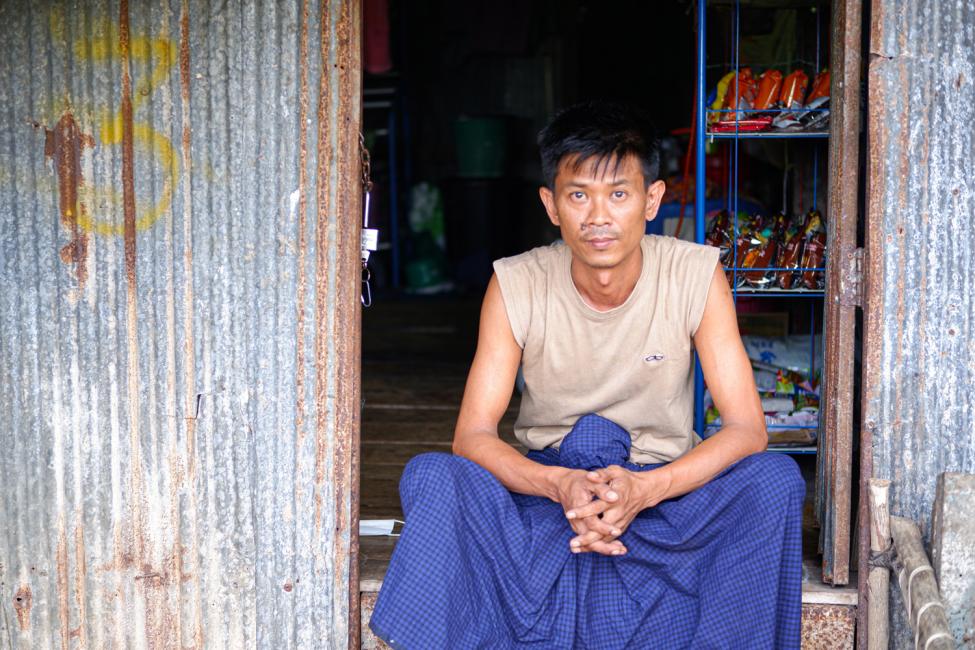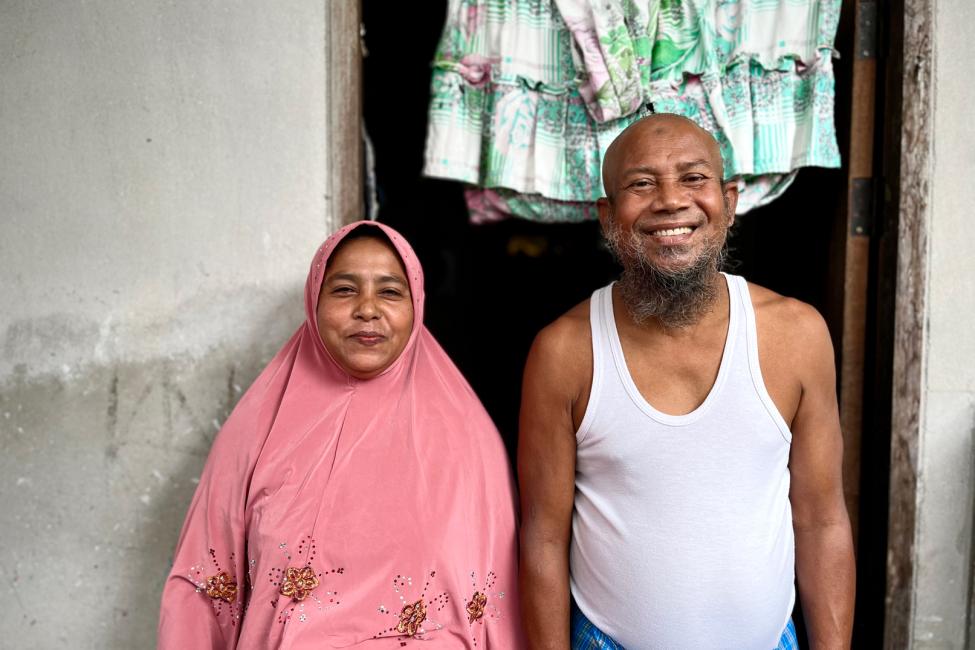-
Who We Are
WHO WE AREThe International Organization for Migration (IOM) is part of the United Nations System as the leading inter-governmental organization promoting since 1951 humane and orderly migration for the benefit of all, with 175 member states and a presence in over 100 countries.
About
About
IOM Global
IOM Global
-
Our Work
Our WorkAs the leading inter-governmental organization promoting since 1951 humane and orderly migration, IOM plays a key role to support the achievement of the 2030 Agenda through different areas of intervention that connect both humanitarian assistance and sustainable development.
Cross-cutting (Global)
Cross-cutting (Global)
- Data and Resources
- Take Action
- 2030 Agenda
Ko Aye Kyaw worked as a farmer in Mandalay, Myanmar, before deciding to migrate in 2019 in pursuit of a better life. “We had no stability, so I moved to Thailand.”
Ko Aye arrived in the Thai border city of Mae Sot. Known as the main gateway between Myanmar and Thailand, Mae Sot is home to tens of thousands of migrants from Myanmar. He and his wife found jobs in a factory near the community where they lived, along with dozens of other migrants from Myanmar who also resided and worked at the same factory.
Things were looking up for Ko Aye and he was earning a decent living. However, this all came to a shuddering halt when the COVID-19 pandemic sent shockwaves across every corner of the world.
“The factory had to shut down, so I was suddenly without a job. I had to borrow money from my neighbours and from my supervisor, who offered a lower interest rate,” recalls Ko Aye. “In the community, we really helped each other. We took care of those who got COVID-19.”
Ko Aye’s experience during the pandemic is not unique. As economic activity halted, tens of thousands of migrant workers found themselves unemployed and in precarious situations.
Prior to the pandemic, Ma Wai Wai* was employed as a domestic worker in Thailand, while her husband would unload and carry cargo from trucks. With physical distancing rules in place, there were no more homes to clean; with international borders closed, there were no more trucks to unload. “Before the pandemic, my salary was not that high, but at least I had a lot of work,” she explains.
Another husband-wife couple, Mg Hla and Ma Khin Kyi, faced the same situation, after travelling to Mae Sot to be with their kids who had earlier migrated in search for jobs. “I used to earn from working at a wood factory, but now it has been over two years without a job,” Mg says.
During this difficult period of their lives, they were offered a lifeline. They were among the 249 migrant workers impacted by the pandemic, who received direct cash assistance, ranging from THB 2,000 to 4,000 (approximately USD 55 to 105) per month, from the International Organization for Migration (IOM) and World Vision Foundation of Thailand (WVFT). Including their dependents, a total of 1,285 people benefited for up to three months.
IOM and WVFT followed a set of criteria to evaluate and select the most vulnerable migrants in need of assistance. Criteria included monthly income, debt, number of dependents, health conditions, among others.
“Around the world, migrants have been among the hardest hit by the pandemic. In Thailand, migrant workers have long been essential to socioeconomic development but also provide a lifeline for their communities back home. It is critical that they are included in response and recovery plans. We cannot leave them behind,” advocates Géraldine Ansart, IOM’s Chief of Mission in Thailand.
Ko Aye, Ma Wai, Mg and Ma Khin all used the assistance to purchase essential supplies and pay back debts accumulated over the pandemic. Mg was able to pay medical expenses for an eye condition that required treatment.
Ko Aye used part of the assistance to buy and sell a few items in his community. “I buy household items, goods and food at the local market, then sell them to my neighbours.” Not everyone can travel often to the local market, so Ko Aye’s service has been welcomed by his neighbours, while allowing him to earn extra income.
As borders slowly reopen and economic activity comes back to life, they are all looking forward to better days ahead.
More than anything, Ma Wai misses her family back in Myanmar. “I am hoping to save more money and go back. I just don’t know when that will be.” Ko Aye shares the same desire to return home, “when the situation improves.”
On the other hand, Mg and Ma Khin are considering moving to Bangkok to reunite with one of their children, after their youngest finishes his schooling in Mae Sot. “I think a lot about our next steps, but for now, we just have to stay strong and fight for our lives.”
The assistance was life-changing for more than a thousand migrants – allowing them to dream again of a better future.
*Name changed to protect identity
The direct cash assistance was made possible through Corporate Responsibility to Eliminate Slavery and Trafficking (CREST), an initiative that supports businesses in upholding the human and labour rights of migrant workers in key sectors and migration corridors, funded by the Swedish International Development Cooperation Agency (SIDA).
This story was written by Miko Alazas, IOM’s Media and Communications Officer in Thailand.


